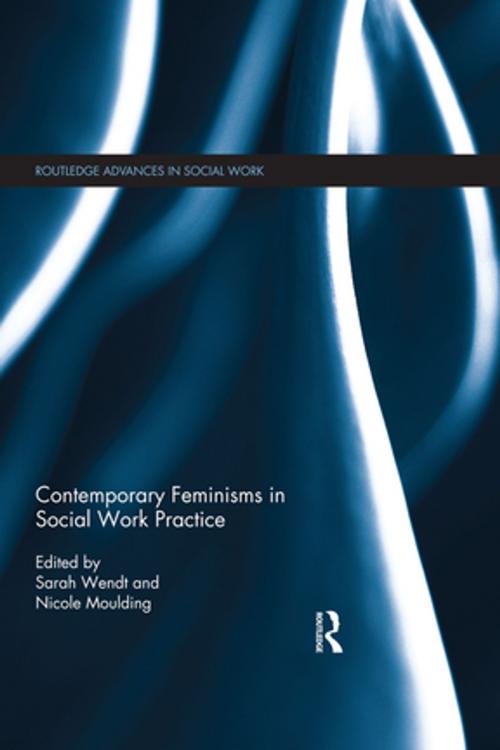Contemporary Feminisms in Social Work Practice
Nonfiction, Social & Cultural Studies, Social Science, Social Work| Author: | ISBN: | 9781317685944 | |
| Publisher: | Taylor and Francis | Publication: | January 29, 2016 |
| Imprint: | Routledge | Language: | English |
| Author: | |
| ISBN: | 9781317685944 |
| Publisher: | Taylor and Francis |
| Publication: | January 29, 2016 |
| Imprint: | Routledge |
| Language: | English |
Contemporary Feminisms in Social Work Practice explores feminism as core to social work knowledge, practice and ethics. It demonstrates how gender-neutral perspectives and practices obscure gender discourses and power relations. It also shows feminist social work practice can transform areas of social work not specifically concerned with gender, through its emphasis on relationships and power.
Within and outside feminism, there is a growing assumption that equality has been won and is readily available to all women. However, women continue to dominate the ranks of the poor in developed and developing countries around the world; male perpetrated violence against women and children has not reduced; women outnumber men by up to three to one in the diagnosis of common mental health problems; and women continue to be severely underrepresented in every realm of power, decision-making and wealth. This worrying context draws attention to the ways gender relations structure most of the problems faced by the women, men and children in the day-to-day worlds in which social work operates. Drawing together key contemporary thinking about feminism and its place in social work, this international collection looks at both core curriculum areas taught in social work programs and a wide range of practice fields that involve key challenges and opportunities for future feminist social work.
This book is suitable for all social work students and academics. It examines the nuanced nature of power relationships in the everyday and areas such as working with cross-cultural communities, mental health, interpersonal violence and abuse, homelessness, child protection, ageing, disability and sexuality.
Contemporary Feminisms in Social Work Practice explores feminism as core to social work knowledge, practice and ethics. It demonstrates how gender-neutral perspectives and practices obscure gender discourses and power relations. It also shows feminist social work practice can transform areas of social work not specifically concerned with gender, through its emphasis on relationships and power.
Within and outside feminism, there is a growing assumption that equality has been won and is readily available to all women. However, women continue to dominate the ranks of the poor in developed and developing countries around the world; male perpetrated violence against women and children has not reduced; women outnumber men by up to three to one in the diagnosis of common mental health problems; and women continue to be severely underrepresented in every realm of power, decision-making and wealth. This worrying context draws attention to the ways gender relations structure most of the problems faced by the women, men and children in the day-to-day worlds in which social work operates. Drawing together key contemporary thinking about feminism and its place in social work, this international collection looks at both core curriculum areas taught in social work programs and a wide range of practice fields that involve key challenges and opportunities for future feminist social work.
This book is suitable for all social work students and academics. It examines the nuanced nature of power relationships in the everyday and areas such as working with cross-cultural communities, mental health, interpersonal violence and abuse, homelessness, child protection, ageing, disability and sexuality.















